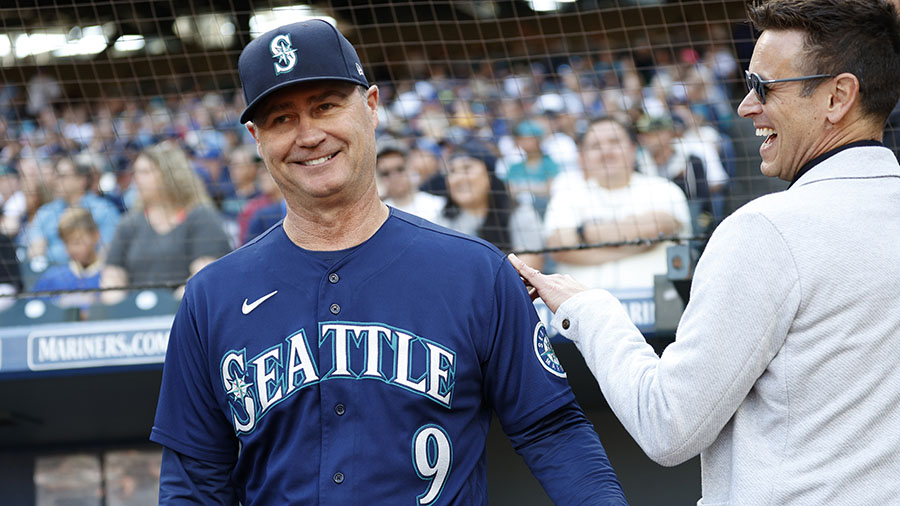
Seattle Mariner General Manager, is no stranger to the intricate dance of Major League Baseball’s trade deadlines.
Jerry Dipoto, the seasoned General Manager of the Seattle Mariners, is no stranger to the intricate dance of Major League Baseball’s trade deadlines. As the 2024 deadline looms large on the horizon, Dipoto finds himself once again navigating the turbulent waters of player acquisitions, team needs, and organizational strategy. His approach to trades is both analytical and strategic, shaped by years of experience in the fast-paced world of professional baseball.
One of the primary challenges Dipoto faces is balancing short-term gains with long-term planning. In a sport where the difference between success and failure can hinge on a single player’s performance, the pressure to make impactful trades is immense. However, Dipoto understands the importance of maintaining a sustainable roster and avoiding the pitfalls of short-sighted deals that could compromise the team’s future.
Another factor complicating Dipoto’s decisions is the unpredictable nature of the trade market itself. With so many variables at play—player availability, team needs, financial considerations, and competitive dynamics—finding the right trade partners and negotiating favorable deals requires a keen understanding of both the market and his team’s position within it.
The Mariners, under Dipoto’s leadership, have undergone significant transformations in recent years. From rebuilding phases to competitive pushes, Dipoto has steered the team through various stages of development, always with an eye towards building a roster capable of sustained success. This holistic approach informs his decision-making process during trade deadlines, where every move must be evaluated not only for its immediate impact but also for its long-term implications.
In addition to strategic considerations, Dipoto must also contend with the expectations of fans, media, and ownership. The pressure to make a splashy move or acquire a marquee player can sometimes overshadow the need for patience and careful planning. However, Dipoto remains steadfast in his commitment to building a team that can compete consistently, even if it means making less headline-grabbing moves in the short term.
Financial constraints also play a role in Dipoto’s trade deadline calculus. While the Mariners have demonstrated a willingness to invest in talent when necessary, Dipoto must balance the desire to improve the roster with the need to maintain fiscal responsibility. This requires careful budgeting and a shrewd understanding of the financial implications of each potential trade.
Furthermore, the competitive landscape of MLB itself adds another layer of complexity to Dipoto’s decision-making process. The American League West, where the Mariners compete, is known for its competitive balance and fierce rivalries. Trades made by divisional opponents can have ripple effects on the Mariners’ playoff aspirations, making each decision all the more critical.
Dipoto’s approach to the trade deadline is also shaped by his philosophy on team-building. Known for his emphasis on versatility, athleticism, and depth, Dipoto seeks to construct a roster that is not only talented but also flexible enough to adapt to the ebbs and flows of a long baseball season. This often means targeting players who can contribute in multiple roles or filling specific needs that arise over the course of the year.
The role of analytics in modern baseball cannot be overlooked when discussing Dipoto’s trade deadline strategies. Like many contemporary GMs, Dipoto relies heavily on advanced metrics and statistical analysis to identify undervalued players, assess potential trade targets, and optimize roster construction. This data-driven approach allows Dipoto to make more informed decisions and maximize the team’s performance both in the short term and over the course of multiple seasons.
Despite the challenges and complexities inherent in the trade deadline process, Dipoto approaches each decision with a sense of pragmatism and optimism. He understands that success in baseball requires a blend of foresight, intuition, and a willingness to take calculated risks. Whether the Mariners make a significant move or stand pat at the deadline, Dipoto’s overarching goal remains the same: to position the team for sustained success and ultimately bring a championship to Seattle.
In conclusion, Jerry Dipoto’s approach to the MLB trade deadline is characterized by a blend of strategic foresight, analytical rigor, and a commitment to long-term success. As he navigates the challenges of the 2024 deadline, Dipoto will undoubtedly draw on his years of experience and expertise to make decisions that are not only in the best interest of the Mariners but also reflective of his broader vision for the organization.



Be the first to comment